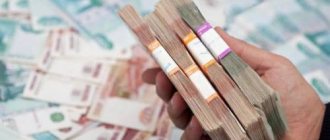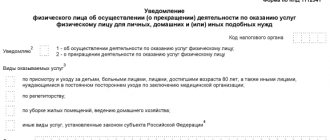Who can be recognized as an excise tax payer?
The list of persons who may be recognized as excise tax payers is given in paragraph 1 of Art. 179 of the Tax Code of the Russian Federation. These include:
- organizations;
- individual entrepreneurs;
- persons who move excisable goods across the customs border of our country, determined in accordance with customs legislation.
ConsultantPlus experts explained how to pay excise taxes to organizations. If you do not have access to the K+ system, get a trial online access for free.
In what cases does the obligation to pay excise taxes arise?
Excise taxpayers have a permanent status only if they regularly carry out transactions subject to this tax. For others, such a duty may arise from time to time. The fact is that any of the above-mentioned entities must pay excise tax only when they carry out any of the transactions subject to excise taxes, i.e. operation with excisable goods. If such circumstances have not arisen, then the subject is not considered an excise tax payer. This is directly stated in paragraph 2 of Art. 179 of the Tax Code of the Russian Federation.
Excise tax and simple partnership
The participants in a simple partnership must determine who exactly pays the excise tax on their own. Typically, the payer is the participant who conducts the affairs of the partnership. The partnership itself is a combination of contributions of several persons with the aim of obtaining some result, including profit, but they do not form a legal entity. Accordingly, the partnership cannot pay excise tax and is not a payer.
However, if the partnership still carries out transactions subject to excise tax, then it must be paid. In this case, the payment obligations are assigned to one participant, who is chosen by the participants of the partnership independently.
Important! All participants in a simple partnership bear the same responsibility for paying excise tax, including individual entrepreneurs, but only one of them pays excise tax.
What goods are excisable?
Excise goods are:
- ethyl alcohol, including denatured ethyl alcohol, raw alcohol, wine, grape, fruit, cognac, calvados, whiskey distillates;
- liquid alcohol-containing products with a volume fraction of ethanol of more than 9%, except for certain types:
- medicines;
- veterinary drugs;
- perfumery and cosmetic products;
- recycled alcohol production waste;
- wine materials;
- alcoholic products with a strength of more than 0.5%, with the exception of food products in accordance with the list established by the Government of the Russian Federation;
- beer with a standard (standardized) content of the volume fraction of ethyl alcohol up to 0.5% inclusive (clause 3.1, clause 1, article 181 of the Tax Code of the Russian Federation)
- tobacco products;
- passenger cars;
- powerful motorcycles (with an engine over 150 hp);
- petrol;
- diesel fuel;
- motor oils;
- straight-run gasoline;
- household heating oil produced from diesel fractions of direct distillation and (or) secondary origin, boiling in the temperature range from 280 to 360 degrees Celsius;
- benzene, paraxylene, orthoxylene;
- aviation kerosene;
- natural gas (in cases provided for by international treaties of the Russian Federation).
Sales of excisable goods
Sales mean the transfer of ownership of excisable goods from one company to another.
Consequently, for the manufacturer, any operation with excisable goods, as a result of which it transfers rights to the goods, is subject to excise tax. Such operations are recognized as:
- transfer of excisable goods free of charge, including for advertising campaigns;
- transfer of excisable goods as payment in kind, including barter and wages;
- sale of excisable goods as collateral;
- transfer of goods under an agreement to provide compensation or novation;
- in case of a shortage of excisable goods when the norms of natural loss are exceeded.
In addition, manufacturers engaged in alcohol and other alcohol-containing products also pay an advance excise tax. This payment means the payment of excise tax in advance, that is:
- before the direct purchase of ethyl alcohol, the production of which was on the territory of the Russian Federation (including denatured alcohol, raw alcohol, alcohol distillate);
- before the direct transfer of ethyl alcohol between structural divisions of the organization for the purpose of producing excisable products.
Transactions giving rise to excise duty
The list of such operations is contained in Art. 182 of the Tax Code of the Russian Federation. Generally speaking, these include:
- any sale of excisable goods;
- transfer of produced excisable goods:
- the processor to the seller, as well as their receipt by the processor as payment for his services;
- within the organization for the further production of non-excisable goods (except for straight-run gasoline used for the further production of petrochemical products, or denatured ethyl alcohol for the production of non-alcohol-containing products if the organization has the necessary certificates to carry out operations with these substances);
- for your own needs;
- in the authorized capital, etc.;
- to a participant upon leaving the society;
- for processing on a toll basis.
- import of excisable goods into the country;
- receipt of certain types of excisable goods, including:
- denatured ethyl alcohol;
- straight-run gasoline;
- benzene, paraxylene or orthoxylene;
- aviation kerosene.
Attention! To carry out operations with certain goods, certificates for production, processing, etc., provided for in Art. 179.1–179.3 Tax Code of the Russian Federation.
Payment of excise tax
The tax is paid to the budget by the manufacturer of excisable goods at the place of production.
In some cases, recipients of excisable goods also act as tax payers, for example, when:
- Receiving gasoline if there is a certificate for its processing;
- Obtaining denatured ethyl alcohol, if there is a certificate for the manufacture of non-alcohol-containing products;
- Sale of confiscated excisable goods;
- Import of excisable goods into Russia;
- Purchase of ethyl and cognac alcohol for the purpose of producing alcoholic excisable products, if an advance payment of excise duty is paid a month before the purchase.
What is not subject to excise taxes?
Provided that separate records are maintained, the following are not subject to excise taxes (Article 183 of the Tax Code of the Russian Federation):
- transfer within the organization of some excisable goods for the production of other excisable goods; the exception is provided in subpara. 22 clause 1 art. 182 of the Tax Code of the Russian Federation for ethyl alcohol;
- export of excisable goods, including if they are exported by the owner - the customer of processing or someone on his behalf, as well as the import of such goods into the port SEZ from the rest of our country;
- primary sale or transfer of confiscated, ownerless or rejected excisable goods for industrial processing under the control of customs or tax officials or for destruction;
- transfer within the organization:
- produced ethyl alcohol for the further production of alcohol-containing perfume and cosmetic aerosols, household chemicals;
- rectified ethyl alcohol produced from raw alcohol, to the division producing alcoholic beverages;
- produced alcoholic distillates (wine, grape, fruit, cognac, Calvados, whiskey) for aging or blending for the purpose of further production (bottling) of alcoholic products by the same organization;
- some operations with aviation kerosene and benzene, paraxylene and orthoxylene.
Operations of a manufacturer of excisable goods
As mentioned above, when a manufacturer performs certain operations, he is obliged to charge excise tax. Such operations include:
- Sales of excisable goods on the territory of the Russian Federation;
- Transfer of excisable goods under a raw material toll agreement;
- For further production of non-excisable goods, for your own needs;
- Transfer of excisable goods to the authorized capital, or as a contribution to a simple partnership;
- Transfer of goods to a participant upon his departure from the organization or partnership;
- Transfer for further production of alcohol (ethyl and cognac) between structural divisions within the organization.
Are individual entrepreneurs and special regime employees recognized as excise tax payers?
Tax Code of the Russian Federation in Art. 179 determines that excise tax payers are not only legal entities, but also individual entrepreneurs. The main condition here is the same for both categories of business entities - in order for them to be assigned this status, they must carry out the appropriate operations. The exception is resellers, but they will be discussed below in a separate chapter.
ConsultantPlus experts explained in detail how individual entrepreneurs pay excise taxes. Get free demo access to K+ and go to the Ready Solution to find out all the details of this procedure.
For special regimes, the situation requires a separate explanation: they may be excise tax payers, but they cannot always apply special regimes. Let us immediately note that we are talking here only about persons on the unified agricultural tax and the simplified tax system.
Let us now explain our conclusion in more detail.
Systems such as the Unified Agricultural Tax and the simplified tax system are unacceptable for those who are engaged in the production of excisable goods, including on a toll basis (subclause 2, clause 6, article 346.2, subclause 8, clause 3, article 346.12 of the Tax Code of the Russian Federation, letters from the Ministry of Finance of Russia dated March 18, 2011 No. 03-07-06/70).
Important! Production for the purposes of the “excise” chapter of the Tax Code of the Russian Federation means not only the release of excisable goods in themselves, but also:
- bottling of alcoholic beverages and beer, which is part of the overall production process;
- any mixing of goods in places of their storage and sale (except for public catering), which results in an excisable product subject to excise tax at a higher rate than the raw materials themselves.
When carrying out transactions not with produced, but with purchased goods, it is possible to apply simplified taxation and agricultural tax.
It should be borne in mind that these special regimes do not exempt persons using them from paying excise taxes. After all, in paragraph 3 of Art. 346.1 and paragraphs. 2–3 tbsp. 346.11 of the Tax Code of the Russian Federation, excise taxes are not listed among the taxes that are replaced by special ones.
This means that a simplifier or a payer of the Unified Agricultural Tax, when performing excisable transactions permissible for him, must fulfill all the duties of an excise payer.
Excise goods
When performing certain transactions with excisable goods, the need to pay tax arises. Such operations include:
- Actions of manufacturers performed with excisable goods;
- Actions performed with excisable goods by other persons.
Manufacturers that carry out transactions with excisable goods mean the following companies:
- Carrying out bottling activities for alcoholic beverages and beer, if bottling is part of the production process;
- Carrying out mixing of goods in places of storage and sale, with the exception of catering. In this case, you need to pay only when the result of the mixing process is an excisable product (
Who will be the excise tax payer if the goods are sold by an intermediary?
When selling excisable goods, excise tax payers are almost always manufacturers. The exception is the sale of confiscated, ownerless and abandoned valuables. Therefore, even when concluding an intermediary agreement, the manufacturer must pay excise tax. Moreover, the peculiarity of taxation here is that the excise tax must be charged at the time of transfer of excisable products to the intermediary, without waiting for the sale of goods to the final buyer. This is explained by the provisions of paragraph 2 of Art. 195 of the Tax Code of the Russian Federation, which defines the date of sale of excisable goods as the day of their shipment or transfer. Therefore, despite the retention of ownership of excisable goods by the manufacturer, the tax must be calculated immediately upon transferring them to the intermediary. This is what the Russian Ministry of Finance thinks (see letter dated October 1, 2008 No. 03-07-06/87).
Example of excise tax definition
Continent LLC is a beer manufacturer, which is sold through Pivo LLC. Beer LLC bottles its products and sells them to the end consumer.
According to the Tax Code of the Russian Federation, beer is an excisable product, so it is necessary to determine whether Continent LLC should pay excise tax.
Beer, both in barrels and in bottles, is a finished product. That is, bottling beer is the production of one excisable product from another excisable product. And the manufacturer of beer in any container must pay excise tax. Accordingly, Continent LLC is an excise tax payer.


